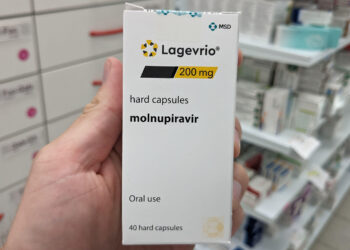TOPLINE:
Remote interventions for alcohol or drug use disorder led to a reduction in relapse rates by 39% and the mean number of days of substance use when supplementing in-person care, but effectiveness varied when remote interventions replaced in-person care, a study found.
METHODOLOGY:
- Researchers conducted a systematic review and meta-analysis of 34 randomised controlled trials involving 6461 participants and evaluated 42 remote interventions for adults diagnosed with alcohol or drug use disorder.
- Included studies were obtained from 29 databases and were published between 2004 and 2023 in Organisation for Economic Co-operation and Development countries.
- Participants had a mean age between 20 and 51 years, and the majority of them were male and Caucasian.
- Interventions were delivered via the internet, text messages, apps, phone calls, interactive voice response, and a computer game and were grouped on the basis of whether they supplemented or replaced/partially replaced in-person care.
- Outcomes were relapse and the difference in the number of days of alcohol or drug use. The risk of bias was evaluated at the outcome level.
TAKEAWAY:
- Patients receiving remote interventions along with in-person care showed a lower risk for relapse (odds ratio [OR], 0.61; P = .001) and a reduction in the number of days of alcohol or drug use (standardised mean difference [SMD], −0.18; P = .001) compared with those receiving in-person care alone.
- In studies fully replacing or partially replacing in-person care, remote interventions showed a lower risk for relapse (OR, 0.51; P = .001) but demonstrated a statistically insignificant reduction in the number of days of alcohol or drug use (SMD, −0.08; P = .301).
- About 69% of outcomes were at a high risk of bias owing to self-reported measures and missing data, and 25% of outcomes had some concerns.
IN PRACTICE:
“Remote interventions delivered as a supplementary component of in-person alcohol/drug treatment appear to be an effective approach to reducing the likelihood of relapse and days of alcohol/drug use. The evidence is not conclusive on replacing, or partially replacing in-person treatment with remote interventions, but it does not appear to lead to worse outcomes,” the authors wrote.
SOURCE:
This study was led by Irene Kwan, Evidence for Policy & Practice information Centre, Social Research Institute, University College London, London, United Kingdom. It was published online on March 24 in Addiction.
LIMITATIONS:
Most included studies were from the United States, limiting generalisability. High attrition rates may have influenced the findings. Blinding was challenging due to the nature of the interventions, and preregistered protocols with analysis plans were often lacking. Variability in outcome measures hindered comparisons across studies, and limited follow-up data prevented the assessment of long-term intervention effects.
DISCLOSURES:
This study was funded through the National Institute for Health and Care Research Policy Research Programme contract with the Evidence for Policy & Practice information Centre at University College London. The authors reported having no conflicts of interest.
This article was created using several editorial tools, including AI, as part of the process. Human editors reviewed this content before publication.
Source link : https://www.medscape.com/viewarticle/remote-support-cut-risk-relapse-addiction-treatment-2025a10007vi?src=rss
Author :
Publish date : 2025-04-04 12:00:00
Copyright for syndicated content belongs to the linked Source.














